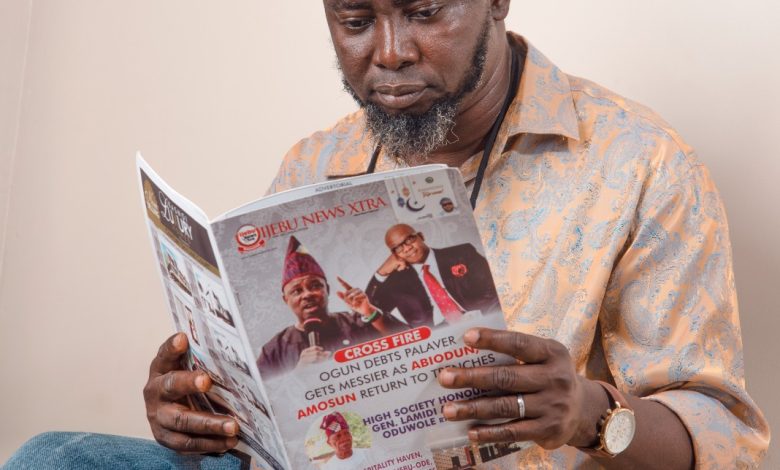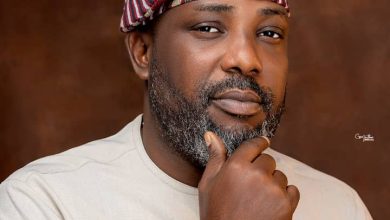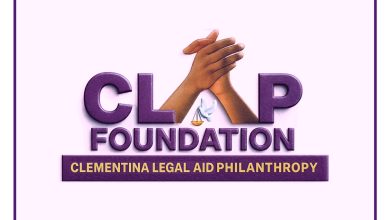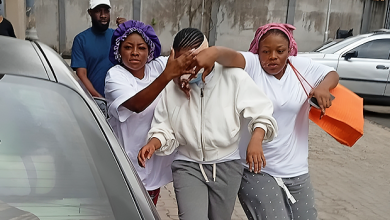Ojude Oba: Setting A Pace In Celebration of Royalty, Life And Culture

Ojude Oba readily comes to mind when talking about a festival that has stood the test of time and impacted on life, culture and tradition in Nigeria and beyond.
Except for the pandemic period when the festival was suspended twice, Ojude Oba festival, celebrated two days after the Eid El Kabir (Ileya) in obeisance and declaration of love to the paramount ruler of the Ijebu people, the Awujale of Ijebuland, Oba Sikiru Adetona, has played a key role in uniting sons and daughters of the Ijebuland across the world.
“Ojude Oba” literally translates to “The frontage of the king”, attracts thousands of tourists from all over the world to Ijebu Ode, the headquarters of Ijebuland.
The 100-year-old colorful occasion also plays a fundamental role in religious harmony among the Ijebus. Every year’s edition has a theme which usually resonates with contemporary national issues. The theme of this year’s edition of the festival is OJUDE OBA: A LESSON IN RELIGIOUS HARMONY, lending much emphasis on the importance of religion and unity in Nigeria.
The venue, the Awujale’s Pavilion, opposite the Awujale of Ijebuland’s palace in Ijebu-Ode usually filled to capacity with indigenes and high – profile personalities across the country.
Former Senate President, Dr Bukola Saraki, who was the special guest of Honour in 2018, described the over 100 years old festival as a “noble culture” that has continued to serve as a veritable rallying point for all sons and daughters of Ijebuland. According to him, whenever the issue of “resilience and dynamism of culture” is being discussed, Ojude-Oba readily comes to mind.
“In over a century of Ojude Oba, Ijebu citizens have shown us that unity will always lead to progress, and that there is strength in unity. This is a shining example for us all. When we talk about the resilience and dynamism of culture, Ojude Oba is a case in point. It is always wonderful to see this proud display of culture that you have consistently showcased for over a hundred years,” he said.
At the heart of the festival are spectacular and unique cultural displays and parades by the age-grade groups called Regberegbe. The Ijebus from other towns apart from Ijebu Ode are members of the Regberegbe groups and they are the major participants in the festival.
Many young ijebu sons and daughters are now keying into Regberegbe. Bankers, businessmen and women, textile merchants among others who are in their 30s are also coming up with their age-groups. Over 15 of such groups will receive Awujale official recognition and royal blessings within a few days time. For instance, two members of the Ogun State House of Assembly, Lukman Adeleye, who is the new minority leader, and Hon Ifedolapo Owode representing Ijebu East constituency, are members of the Egbe Bobagunwa Okunrin age-group. Both of them in their early 40s both belong to the same age-group. This shows the importance of Regbregbe.
The age groups emerged at the turn of the 19th century, after the Ijebu people came into immense wealth by virtue of their industry leading to the systemic internalization of different age grades into its social fabric. The groups are graded according to the years of birth of members.
For instance, the present Awujale of Ijebuland, Oba Sikiru Kayode Adetona belongs to Egbe Mafowoku which is for people born between 1932 and 1934 and is one of the groups populated by the elderly in Ijebuland today. The names borne by the groups can also signal major happenings around the birth years of the members.
For instance, the Bobagunte group is populated by people born between 1959 when Oba Adetona ascended the throne, and 1961. These groups have, in time, crystallised into instruments of social unity, cohesion and mobilization of human and material resources for the development of the Ijebu nation.
The parade of the descendants of the war heroes who gained notable victories for the ijebu Nation during the inter-ethnic Yoruba wars in the pre-colonial history of Nigeria would then follow after the parade of regberegbes. The festival gives these classes of people the opportunity to simulate the battle shows and displays. Each of the families including the Alatise, Shoye, Shote, Otubu, Kuku and Balogun would file out with the leader of the family- in most cases the eldest in the family or his child or grandchild mounts on horsebacks and dances to war-like drum beats while bouts of gunshots ring, sending coils of smoke into the air.
However, beyond the displays of glamour and funfair at the festival, many of the age-groups are now involved in several humanitarian and philanthropic gestures as part of efforts to lift the less privileged in Ijebuland. This shows that the festival is beyond merrymaking.
After a two-year break in 2022, Ojude Oba Festival has made a spectacular return in the ancient town of Ijebu -Ode, where Lagos State Governor Babajide Sanwo-Olu was the special guest. Governor Dapo Abiodun was also at the event.
Sanwo-Olu said the Ojude Oba Festival had stayed true to its Islamic roots and had become a unifying occasion for people, regardless of their faiths, tribes and dialects.
Under the reign of Oba Adetona, Lagos Governor said the festival had grown to become a global carnival recognised across the world by people of Yoruba origin.
“The Ojude Oba Festival has, for ages, stayed true to its Islamic roots and has also expanded to become a unifying symbol and occasion for people of all faiths, tribes, and tongues; as well as a global celebration of Ijebu heritage and culture.
“We must never lose sight of this unifying element, at a time when the forces of division seem to be working so actively to undermine all that we cherish as a people. Celebrations like Ojude Oba remind us that evil will never triumph over good,” he said.








